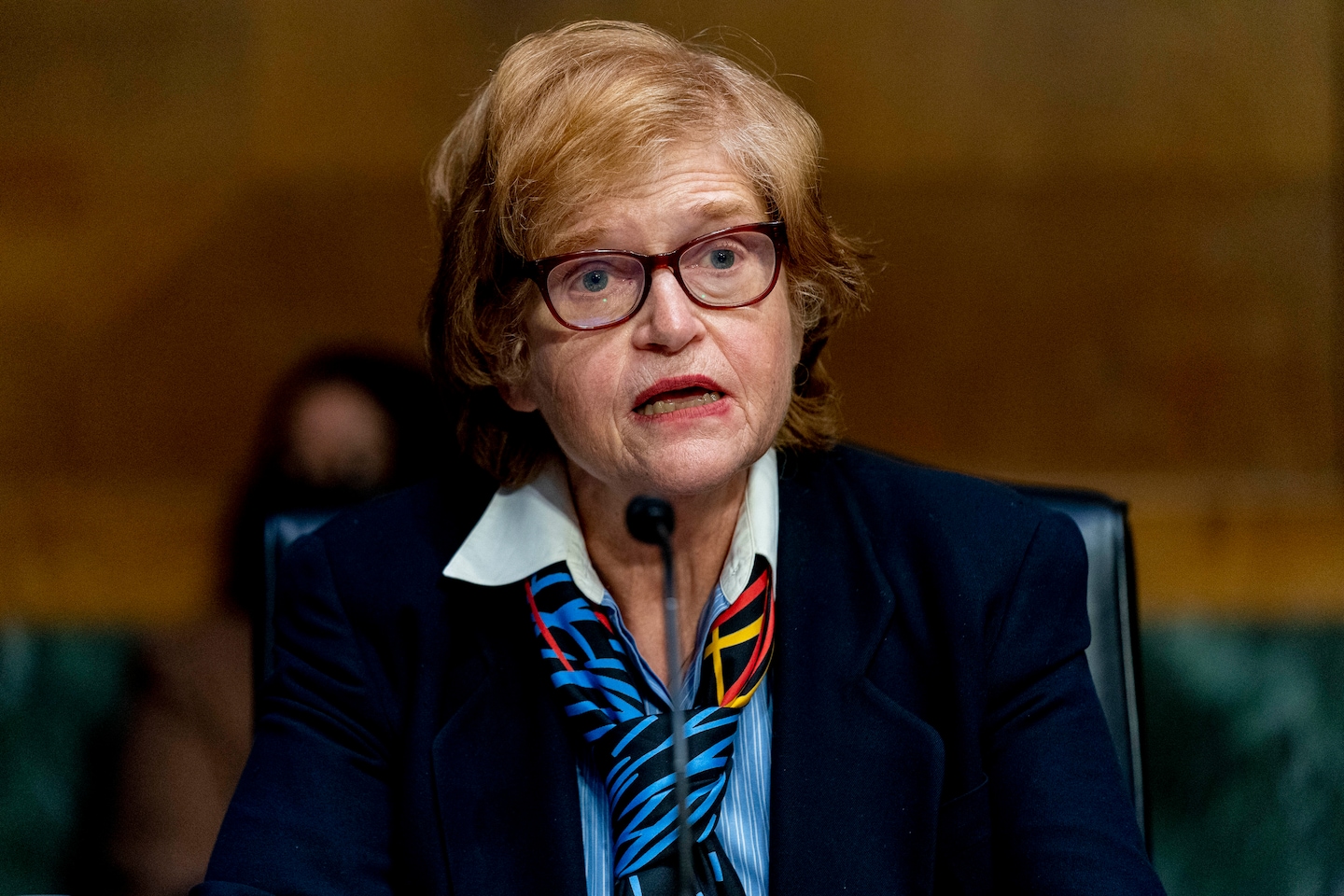Opinion | Deborah Lipstadt takes on Putin’s distortions about Ukraine

“So what if Zelensky is Jewish?” Sergei Lavrov, Putin’s foreign minister, said last week on Italian television. Citing an old, unsubstantiated theory, he said that “Hitler also had Jewish blood” then added, “the most ardent antisemites are usually Jews.”
For the acclaimed historian Deborah Lipstadt, who began work this week as the Biden administration’s special envoy to monitor and combat antisemitism, Putin’s manipulation of the Holocaust narrative is an outrage that warrants a strong U.S. response.
Holocaust memory in public debates, Lipstadt told me on Tuesday during her first interview in her new capacity, “used to be about speaking truth to power. And now we have power using the Holocaust to speak lies to justify war crimes.”
“I don’t shock easily,” she said, referencing her famous legal battles with British Holocaust denier David Irving. “But this, I find breathtaking.”
Speaking in her new office at the State Department, Lipstadt said that recent events — in Ukraine and elsewhere — have altered her views about which forms of denial are the most pervasive and dangerous. Decades ago, what seemed most threatening were outright deniers such as Irving or his French counterpart, Robert Faurisson. But today, what she has long called “soft-core denial” seems the more urgent problem: It does not so much deny well-established facts as blur them, allowing any number of bad-faith comparisons that are meant to chip away at the truth.
Jean-Marie Le Pen, the nonagenarian patriarch of the French far right, presents another good example. He has repeatedly called the Nazi gas chambers a “detail” in the history of World War II, a legacy that has not stopped his daughter Marine from winning an increasing share of the vote in her pursuit of the French presidency. Lipstadt also accused the Trump administration of soft-core denial for failing to mention either Jews or antisemitism in the 2017 White House statement marking Holocaust Remembrance Day.
“Hard-core denial is sort of seen now as wacko,” Lipstadt said. “What’s becoming clear now is soft-core denial is equally as dangerous if not more dangerous than hard core, in part because — to use a highfalutin academic term — it’s squishier. It’s a little bit like whack-a-mole. It shades the facts so people who don’t know are more easily confused.”
I asked Lipstadt about the more general question of comparing the Holocaust to other events, a contentious issue for decades. Elie Wiesel, a survivor who became a major voice of Holocaust memory in the United States, frequently spoke about human rights abuses but famously discouraged any direct comparisons, saying: “I compare nothing to the Holocaust.”
In June 2019, the U.S. Holocaust Memorial Museum — in response to remarks from Rep. Alexandria Ocasio-Cortez (D-N.Y.) on border facilities and concentration camps — issued a blunt statement that the museum “unequivocally rejects efforts to create analogies between the Holocaust and other events, whether historical or contemporary.” Hundreds of scholars and writers — myself included — signed an open letter to the museum, insisting that “responsible analysis, contextualization, comparison, and argumentation” are essential academic tools.
Lipstadt did not sign that letter, but during our interview, she said that responsible and respectful comparisons should be allowed. “We can say, this is not the same, but you can make comparisons. If you can’t make comparisons, you’re frozen.”
Asked about another contentious topic, she said that “criticism of Israel is not ipso facto antisemitic.” And although, as a State Department official holding the rank of ambassador, her focus is on antisemitism overseas, she said that it was also essential to acknowledge the growing problem of antisemitism in the United States, whether in the form of offensive public statements or physical attacks.
“We have to acknowledge our own shortcomings — we can’t just talk about whatever country you have in Europe without saying it’s also here.” On a personal level, events at home over the past few years have made her start wearing a Magen David, or Star of David, necklace. “I didn’t want to pass. I wanted to be clear about who I was,” she said.
I also asked her about the comparative dangers of antisemitism on America’s right and the left — with a number of Republican officials openly recycling conspiracy theories about George Soros and the “great replacement,” while members of the so-called Squad of congressional Democrats make comments hostile toward Israel or support a financial boycott of the Jewish state.
“Would you rather die of covid or cholera?” Lipstadt said. “I hate the debate over which is worse. There are times when one is more prevalent, but they’re all terrible.”
She said that a key priority in the months ahead will be using the Abraham Accords — agreements signed in 2020 between Israel and the United Arab Emirates and between Israel and Bahrain — to foster education about both antisemitism and Jewish life in countries that, until recently, did not even recognize Israel’s existence. “It’s a chance to break down barriers, to get people to consider what they thought was fact.”
“I won’t solve the issue, but if I can get people to understand it and recognize it, and to recognize that it’s not just a Jewish issue,” Lipstadt said, “it will be worth it. If I can make a difference, then as we say, dayenu, it’s sufficient.”
This article has been archived for your research. The original version from The Washington Post can be found here.


